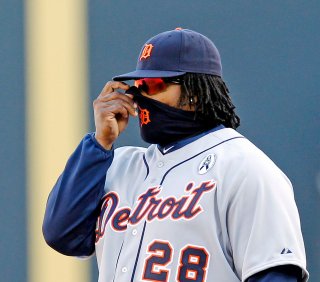Study Suggests Neck Gaiters Might Be Worse Than No Mask at All
It is important to know which face masks work and which don't.
A recent study conducted by Duke University has confirmed that not all face masks and coverings are equally effective in curbing the spread of the novel coronavirus.
The researchers tested a total of fourteen common face coverings and discovered that neck gaiters—tubes of performance fabric generally used for running and exercising outdoors—offered basically zero protection against the contagion and even had the potential to spread the virus further.
“We attribute this to … the textile breaking up those big particles into many little particles,” the study’s author Dr. Martin Fischer said in a video release.
“They tend to hang around longer in the air, they can get carried away easier in the air, so this might actually be counterproductive to wear such a mask.”
N95 respirators with no valves garnered the highest score in the study, but experts have noted that these devices are in short supply nationwide and should be reserved for frontline healthcare workers.
A disposable surgical mask made from polypropylene was the next-best option, followed by one made from two layers of cotton and one layer of synthetic material.
The Centers for Disease Control and Prevention also recently released new guidance that advises people not to wear face masks with vents or exhalation valves.
“Masks with one-way valves or vents allow exhaled air to be expelled out through holes in the material,” the CDC wrote on its website. “This can allow exhaled respiratory droplets to reach others and potentially spread the COVID-19 virus.”
Last month, CDC Director Robert Redfield asserted that if every American decided to wear a mask or face covering, the United States could get the coronavirus pandemic under control within two months.
Medical experts have noted that the virus can spread through respiratory droplets that pass when an infected person talks, coughs or sneezes. Recent studies have suggested that not wearing a face mask dramatically increases a person’s chance of being infected by the coronavirus.
Other experts have claimed that the coronavirus could spread through aerosolized droplets, particularly in poorly ventilated spaces. According to the World Health Organization, airborne transmission refers to the presence of extremely small particles that can remain in the air for long periods of time and has the potential to be transmitted to others over distances greater than one meter.
For even better protection against the contagion, White House coronavirus advisor Dr. Anthony Fauci recently suggested that people should wear goggles or an eye shield in addition to a face mask or covering.
The country’s top infectious disease expert called the use of goggles and eye shields as “perfect protection” from COVID-19, but also noted that it’s not “universally recommended.”
There are now more than 20.4 million confirmed cases of coronavirus worldwide, including at least 743,000 deaths, according to the latest data from Johns Hopkins University.
The United States has the most cases, with nearly 5.2 million confirmed infections and more than 164,000 deaths.
Ethen Kim Lieser is a Minneapolis-based Science and Tech Editor who has held posts at Google, The Korea Herald, Lincoln Journal Star, AsianWeek and Arirang TV. Follow or contact him on LinkedIn.
Image: Reuters

